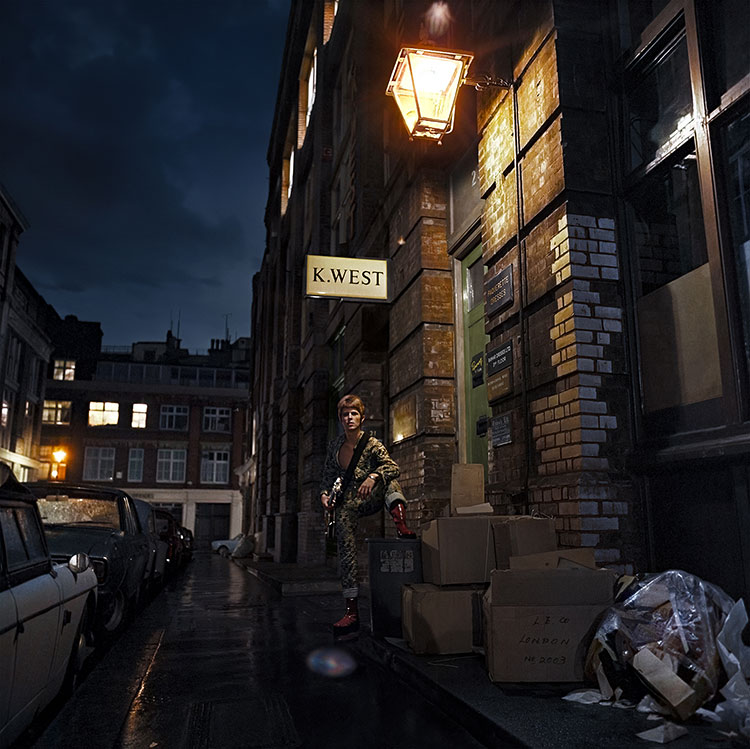Parlophone respond to David Bowie ‘Berlin’ box set mastering criticisms

In the last few days there has been mounting criticism from some of the audiophile community about perceived mastering errors on Parlophone’s new David Bowie box set A New Career In A New Town.
In terms of specifics, criticisms levelled include the following points:
- There is a volume drop during the title track of Heroes at around the 2.50 mark
- Low has a rather overcooked bass-heavy remastering which spoils side one, in particular.
- Various issues with the Lodger remaster, including a similar increase in bass some tape/noise flutter being present and an incorrect fade-up on the beginning of Red Sails
Not everyone complaining has problems with all of the above, but there is a general consensus that given the status of the iconic track, the Heroes issue is disappointing and rather puzzling. The accusation is one of sloppiness; lack of quality control.
In fact, the strength of feeling is reflected in the reviews on Amazon UK, many of which bring up these issues. There have been enough complaints for the UK arm of the online retailer to actually stop selling the CD box set for the time being (it’s still available from third party sellers) so this issue is obviously of concern to the record label.
SDE put these criticisms to Julian Stockton, David Bowie’s publicist and and as a result I was invited to Warner’s London HQ this morning to discuss this issue in some depth, with Julian and Tim Fraser-Harding (President, Global Catalogue, Recorded Music for Warner Music Group).

‘Bottom end’ on remastering
During a conversation that lasted close to two hours, the team stressed how much time and energy had gone into both getting the music and the presentation of this set right. I was told, for example, that over 50 vinyl test pressings for just one of the albums in A New Career In A New Town were checked. In terms of the issue around the mastering and the additional bass or ‘bottom end’ on albums like Low and Lodger, the point was strenuously made that Tony Visconti has never been involved in remastering these albums before, and what you hear on these new remasters is how he always wanted them to sound. Back in the 1970s, there was only so much bottom end you could deliver, due to the limitations of vinyl, but this was an opportunity to address that. Visconti of course, was the producer of all four records (Low, Heroes, Lodger and Scary Monsters) and therefore ‘in the room’ when they were being made. He has the credibility to make this call, even if the sound isn’t to everyone’s taste (or what they are used to via previous remasters). This approach was discussed with Visconti and agreed on beforehand. In other words, the object was never to make these sound as much like the original vinyl pressings as possible. Warner Music/Parlophone categorically reject the notion that these sound differences constitute any kind of error or fault with the box set.

Heroes ‘change in volume’
In terms of the problem on the title track of Heroes, it was explained that this is down to an issue on the master tape. It was stressed that for all four albums, the label went back to the original analogue master tapes for new digital transfers (done at 192/24). The issue on the master tape of Heroes is described as a ‘loss of energy’ on that title track that starts at around the 2.42 mark, and lasts for about four or five seconds. Parlophone stressed that they were very keen to maintain the integrity of using the original master tape. So rather than ‘fly in’ a section from another tape generation or source (such as a safety copy) they kept to the original master tape transfer and the track Heroes was given a boost of high frequency during the period of this loss of energy. When this high frequency boost finishes (around the 2.50 mark) the effect creates the impression of a drop in volume but Parlophone insist that this simply isn’t the case. The level is consistent with the start. Again, Warner Music/Parlophone reject the notion that this disc is in any way faulty. You are listening to the original master tape with this slight frequency adjustment for a short period in the middle of Heroes to correct an issue inherent with the master tape itself. I asked why this issue on the master tape hadn’t come up before and was told that it was probably because this was the first time in a very long time that the original master tape was being used and no-one knows when the issue with the tape may have come about.
Tape hiss etc.
Warner Music / Parlophone emphasised that there was no de-noising at all on any of the remasters within this box set any hiss present is as per the original master tapes.
Above is a summary of the issues discussed at the meeting, but below you can read a statement in full issued by Julian Stockton, David Bowie’s publicist:
“DAVID BOWIE A NEW CAREER IN A NEW TOWN – HEROES
Concerning ‘Heroes’ what fans are hearing is not a level drop. This is, through mastering, an attempt to resolve an issue that exists on the original master tape.
On the flat unmastered transfer, there was a temporary loss of energy on the track just before 2.50. During the album mastering some high-frequency automation (in the region of +- 6dB) has been added in order to compensate for this. So to clarify, there is not a drop in volume, there is a high frequency boost for a couple of seconds at the loss of energy which then returns to normal and the track continues to the end at a level consistent to the start.
As the co-producer of ‘Heroes’ Tony Visconti, was both fully involved and approved the remastering of this and all original albums within the set.
DAVID BOWIE A NEW CAREER IN A NEW TOWN – REMASTERING
The albums contained in A New Career In A New Town are how Tony Visconti, who was not involved in past remasterings, always wanted them to sound. He was previously hampered by the restrictions of vinyl regarding the bottom end.
Any tape hiss on the albums comes straight from the original analogue tapes. For A New Career In A New Town, there was no de-noising as had happened on the previous remastering of these records. The hiss is far more true to the sound of the original analogue tapes which Bowie and Visconti would have heard when making the record.”



 Interview
Interview

By Paul Sinclair
461